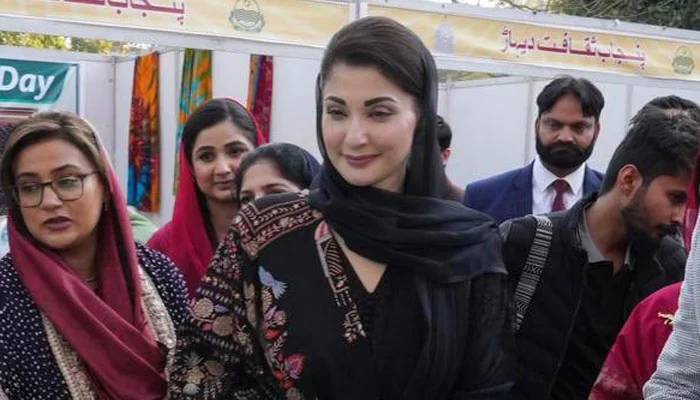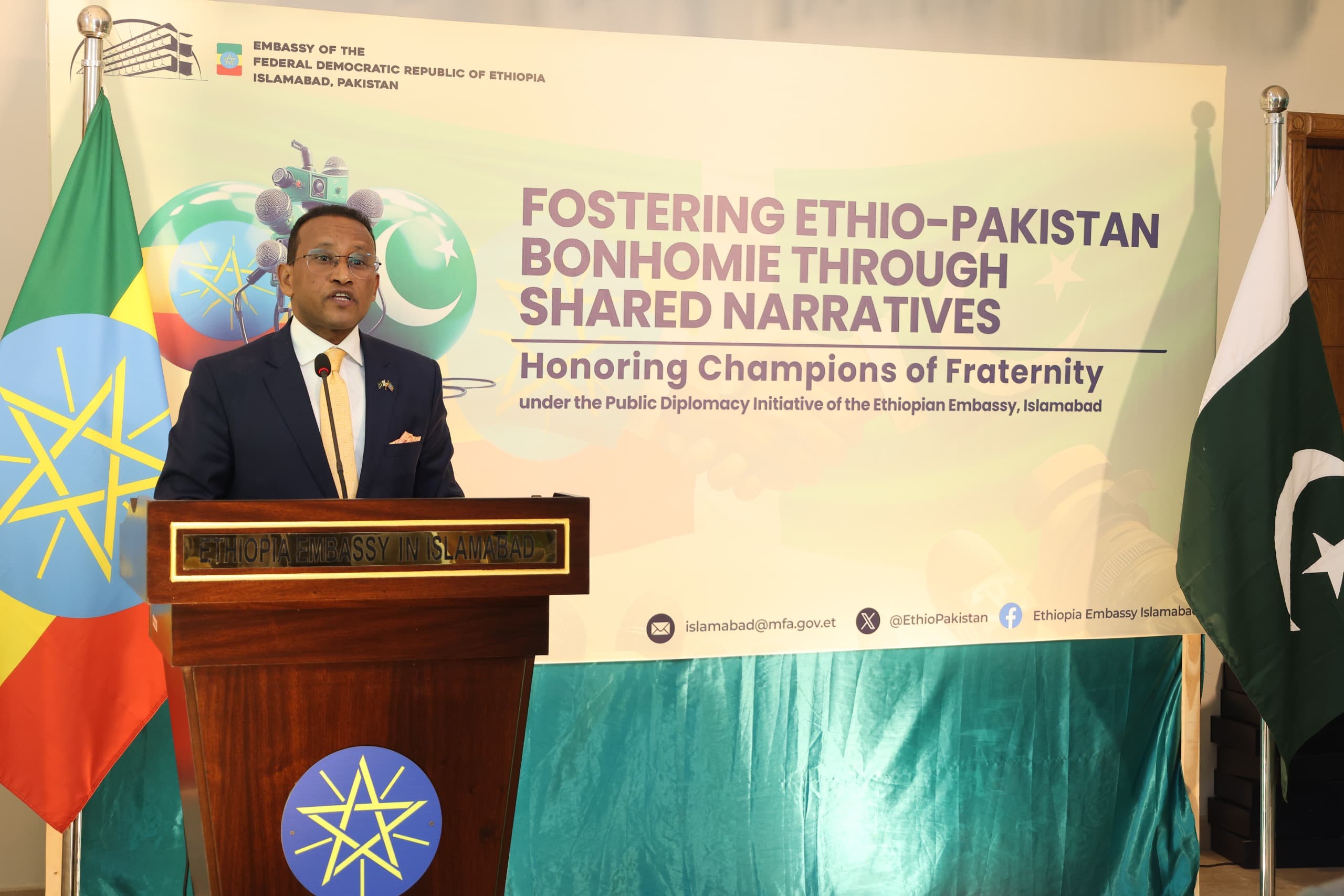THE CHANGING GLOBAL DYNAMICS & CHALLENGES FOR PAKISTAN
DR HUSSAIN
The writer is Islamabad based, Freelance writer
He can be reached at: Hussaindr44@gmail.com
Cell No: 0300-5612145
Countries worldwide are contending with the extensive impacts of interconnectedness in an era marked by technological advancements and geopolitical shifts. In this dynamic global landscape, Pakistan assumes a pivotal role due to its strategic position at the crossroads of Central Asia, the Middle East, and South Asia. The altering global dynamics have repercussions on Pakistan’s economic outlook, security considerations, and diplomatic involvements. On the economic front, the nation must adeptly adjust to changing trade patterns and technological advancements to seamlessly integrate into the global market. Concerning security, Pakistan’s strategic involvement in regional stability and counterterrorism aligns its interests with the global effort against emerging threats. To safeguard its interests and actively contribute to global initiatives, the nation must adeptly navigate evolving alliances and power structures in the diplomatic arena. Positioned at the intersection of global change, Pakistan’s ability to deftly address these challenges will not only shape its own trajectory but also significantly contribute to shaping the global order.
Late international changes have essentially impacted Pakistan’s essential scene, introducing a mind boggling exhibit of difficulties and open doors. Quite possibly the most conspicuous shift has been the withdrawal of U.S. powers from Afghanistan. The vacuum left by this withdrawal and the ensuing resurgence of the Taliban have direct ramifications for Pakistan’s security and strength. Pakistan’s weakness to struggle overflow on account of its border with Afghanistan accentuates the basic requirement for key measures to address what is happening in its western neighbor.
The China-Pakistan Economic Corridor (CPEC), a flagship initiative under the Belt and Road Initiative, has significantly bolstered economic and strategic ties between the two nations, further hardening Pakistan’s developing partnership with China as a characterizing part of its geo-political position. This alliance not only enhances Pakistan’s geopolitical importance but also creates avenues for economic expansion.
As China asserts its global influence, Pakistan’s alignment with Beijing introduces a new dimension to regional power dynamics, influencing the international affairs of South Asia and beyond.
Moreover, adjustments in diplomatic relations with the United States underscore another
facet of recent geopolitical changes for Pakistan. The nation has reconsidered its diplomatic approaches in response to the evolving U.S. stance in South Asia and the reorientation of its priorities, notwithstanding long standing historical ties. Given their mutual concerns regarding regional security and anti-terrorism endeavors, maintaining equilibrium in the relationship ,demands careful consideration. Safeguarding Pakistan’s national interests in a dynamic global landscape ,necessitates adept diplomacy and a strategic outlook to navigate these intricate geopolitical shifts.
Pakistan ends up constrained to reconsider its alliances, develop new partnerships, and stand up to vital difficulties amidst a quickly changing world. An obvious feature of this recalibration is the extending connection among Pakistan and China, encapsulated by the essential China-Pakistan Economic Corridor (CPEC). This critical initiative fortifies financial ties as well as lifts the essential partnership, giving Pakistan an important chance to explore the worldwide order alongside one of the world’s significant powers.
Pakistan’s interactions with the United States present a delicate balancing act when it comes to strategic challenges. By and large, Pakistan plays had a critical impact as a pivotal partner of the US, especially with regards to battling terrorism. Pakistan should explore this relationship circumspectly, given the changing global demands and the alignments with its own national interests, combined with cooperation on common issues. To achieve this delicate balance, effective diplomacy is required to address opposing viewpoints and encourage cooperation in areas that benefit both parties.
The dynamics of the region, as well as the relationships with India and Afghanistan, contribute to diplomatic difficulties. Complex difficulties arise when attempting to maintain stability in Afghanistan while also managing tensions with India. The alarming circumstances in Afghanistan, set apart by the withdrawal of U.S. powers and the resurgence of the Taliban, requires a nuanced discretionary way to deal with safeguarding Pakistan’s inclinations and contribute productively to regional harmony. Pakistan seeks to foster cooperation, mitigate conflicts, and strategically position itself in the ever-changing geopolitical landscape as it navigates these diplomatic complexities.
The complicated web of the developing international scene is firmly interwoven with the activities and strategies of major worldwide players, applying a significant effect on territorial players.
Through its policies, the United States of America has historically had a significant impact on South Asia’s security and political climate. The recalibration of U.S. commitment to the area highlights the requirement for nations like Pakistan to adjust to changing coalitions and power structures, taking into account the more extensive effect on geopolitical relations.
The ascendant impact of China remains as a significant variable molding regional dynamics, remarkably through the groundbreaking effect of the Belt and Road Initiative
(BRI). An excellent model is the China-Pakistan Economic Corridor (CPEC), a lead project inside the BRI structure, which has re-imagined financial and vital ties in South Asia. China’s raising ventures and broad framework projects add to a significant change of the region’s financial scene, stretching out past the lines of Pakistan to influence neighboring nations. The contribution of China in South Asia’s regional undertakings flags a change in perspective in the domains of security, trade, and political relations. As a significant worldwide player, China’s impact holds extensive implications for the dynamics inside the region.
Moreover, Russia’s essential association in the region acquaints an extra layer with the consistently advancing dynamics of the area. Russia’s diplomatic overtures and military involvement in certain conflicts influence the geopolitical balance, requiring nations in the region to consider Moscow’s role in their strategic calculations. The interplay of these major global players— the U.S., China, and Russia— contributes to the complexity of regional dynamics, necessitating a nuanced understanding and adept diplomatic strategies for nations like Pakistan to navigate the geopolitical shifts effectively.
In the unique worldwide scene, Pakistan faces different monetary difficulties, with external trade weakness standing apart unmistakably. The country’s weighty dependence on trades leaves it vulnerable to the effects of worldwide financial fluctuations, changes in product costs, and disturbances set off by global occasions. Pakistan must implement economic policies that are resilient, focusing on diversifying its export base, decreasing its reliance on key commodities, and increasing its economic resilience to effectively navigate the market’s uncertainties.
The energy sector represents another critical arena of economic challenge for Pakistan. Pakistan must balance its energy needs with environmental considerations in light of global
Efforts to transition to renewable and sustainable energy sources. This necessitates significant investments in sustainable practices and infrastructure for alternative energy.
The economic implications of transitioning to eco-friendly sources, while necessary for global environmental goals, require careful planning to ensure a smooth adaptation that minimizes stoppages to economic activities and provides avenues for job creation and economic growth.
The competition for FDI is intense, and nations globally are vying to attract investment that fuels economic growth. Guaranteeing political stability, working on administrative systems, and addressing infrastructural gaps are basic for Pakistan to situate itself alluringly in the worldwide investment scene. Furthermore, the nation needs to focus on educational and technological progressions to upgrade its human resources, making it more engaging for global organizations hoping to put resources into a talented and versatile labor force. Pakistan can better position itself in the shifting global economic landscape and pave the way for sustained growth and prosperity by addressing these challenges.
Pakistan’s economic landscape is significantly shaped by its trade relations and economic partnerships in the ever-changing global arena. Trade relations play a crucial role in Pakistan’s economic fortunes, and the country is continually adapting to navigate the complexities of international commerce. Strengthening existing trade ties and diversifying trading partners are essential strategies for mitigating risks associated with global economic fluctuations. The changing dynamics of worldwide economic accords and partnerships require Pakistan’s dynamic cooperation in forming worldwide monetary approaches to guarantee that its interests are safeguarded and its commodities find receptive sectors.
Monetary organizations likewise stand firm on a vital footing in Pakistan’s financial system, with the China-Pakistan Economic Corridor (CPEC) being a noticeable model. The essential partnership with China under CPEC reinforces financial ties as well as has expansive international implications. As global economic trends shift towards sustainable
practices and green technologies, economic partnerships become vital avenues for Pakistan to modernize its infrastructure, enhance technological capabilities, and attract foreign investment.
Collaborative initiatives can position Pakistan as a player in emerging global markets and facilitate the transfer of knowledge and technology, thus bolstering the country’s economic resilience.The impact of global economic trends on Pakistan is profound, influencing aspects ranging from commodity prices to investment flows. Events like the COVID-19 pandemic and the global financial crisis show that economic uncertainty can have far-reaching effects on Pakistan’s economic stability.
The nation must proactively adjust to arising situations, like the ascent of digital economies, eco-friendly power, and global trends. Pakistan can capitalize on new opportunities, encourage creativity, and position itself as a dynamic player in the ever-evolving global economic landscape by aligning its economic policies with global trends.
Worldwide associations and monetary foundations assume a significant part in molding Pakistan’s financial scene and helping the country in exploring monetary changes. The International Monetary Fund (IMF) is a vital participant, frequently extending out monetary help to nations confronting financial difficulties.
Pakistan has drawn in with the IMF on different occasions to settle its economy, execute underlying changes, and address equilibrium of installment issues. These engagements, while providing essential financial support, also come with conditions that necessitate economic reforms, fiscal discipline, and policy adjustments. Striking a balance between meeting the IMF’s requirements and safeguarding domestic interests remains a complex challenge for Pakistan.
The World Bank is another crucial institution that supports Pakistan’s economic development through various projects and initiatives. These endeavors often focus on infrastructure development, poverty alleviation, and economic diversification.
The World Bank’s involvement ,enables Pakistan to access funds for projects that might otherwise be challenging to finance independently. Cooperative endeavors with worldwide monetary organizations likewise work with the execution of changes that can improve financial productivity, administration, and flexibility notwithstanding worldwide financial vulnerabilities.
With regards to exchange, associations like the World Trade Organization (WTO) impact the worldwide exchange decisions that influence Pakistan’s admittance to global business
sectors. Pakistan’s commitment with the WTO and adherence to its guidelines are significant for the country to get its inclinations in the worldwide trade framework.
The job of these worldwide bodies highlights the interconnected idea of the worldwide economy and accentuates the significance of conciliatory and vital commitment by Pakistan to guarantee that its monetary approaches line up with worldwide norms and add to global financial steadiness.
Regional security concerns present a complex and dynamic landscape for Pakistan, with implications that extend across various dimensions. One of the premier difficulties comes from the circumstances in Afghanistan. Security risks have increased in the region as a result of the Taliban’s resurgence and the withdrawal of U.S. forces. Pakistan imparts a long and permeable boundary to Afghanistan, and the likely overflow of terrorism and radicalism represents an immediate danger to its dependability. Really dealing with this challenge requires a sensitive diplomatic equilibrium, as Pakistan endeavors to add to Afghan peace endeavors while getting its own boundaries against the repercussions of regional insecurity.
The longstanding tension and historical disputes with India constitute another major security concern for Pakistan. The Kashmir issue remains a focal point, contributing to periodic escalations and heightened military posturing. The unresolved nature of this conflict not only perpetuates regional instability but also requires constant vigilance from Pakistan in managing its eastern border. The potential for military contentions in the area has implications for Pakistan and India as well as for the more extensive stability of South Asia, featuring the significance of conciliatory endeavors and conflict resolving systems to address underlying security challenges.
Besides, terrorism remains a persistent security danger in the region, with implications for Pakistan’s inner stability and global relations. Notwithstanding critical counterterrorism endeavors, Pakistan faces difficulties from both domestic and global terrorists. The fluid nature of these threats necessitates ongoing cooperation with regional and international partners to counteract terrorist activities effectively. The ability of Pakistan to effectively address these challenges it faces ,holds paramount importance, not only for its own security but also for fostering regional peace and stability.
Pakistan’s complicated regional security concerns include terrorism, border disputes, and regional conflicts that are intertwined. Terrorism, both domestic and transnational, stays a tenacious test with significant implications for the country’s security.
Regardless of purposeful endeavors to battle radical components, Pakistan faces a continuous danger of terrorism that frequently stretches out past its boundaries. The generally permeable and testing landscape along the Afghanistan-Pakistan line has worked with the development of assailants, worsening the security circumstance in the area. Effectively addressing terrorism requires sustained international cooperation, intelligence-sharing, and comprehensive strategies that encompass both military and socio-economic dimensions.
Border disputes, particularly the longstanding issue of Kashmir with India, contribute significantly to regional tensions and security challenges. The unresolved status of Kashmir has led to periodic escalations and military standoffs between Pakistan and India, casting a shadow over regional stability. The Line of Control (LoC) in Kashmir remains a potential flashpoint, and the lack of a lasting resolution adds complexity to the security dynamics of South Asia. Managing border disputes demands not only diplomatic finesse but also a commitment to dialogue and conflict resolution mechanisms to mitigate the risk of armed conflicts that could have far-reaching consequences for the region.
Diplomatic efforts and alliances play a crucial role in Pakistan’s pursuit of regional stability amid complex security concerns. One notable diplomatic initiative is Pakistan’s engagement in facilitating the Afghan peace process. Perceiving the significance of a steady Afghanistan for local security, Pakistan has effectively taken part in global endeavors to achieve an arranged settlement to the Afghan conflict. Cooperative conciliatory endeavors, for example, the Doha talks, include key partners, including the US and the Taliban, meaning to lay out a structure for enduring harmony.
Pakistan’s part in these dealings ,mirrors its obligation to territorial stability by tending to the security challenges radiating from its western border.
Pakistan’s support in regional organizations, like the Shanghai Cooperation Organization (SCO), features its devotion to cultivating strategic ties and tending to security concerns through multilateral channels. Pakistan is one of the SCO’s member states, and the organization gives them a place to discuss and work together to improve regional stability and security. By taking part in such unions, Pakistan tries to fabricate strategic scaffolds, share knowledge, and team up on counterterrorism measures, adding to a safer and stable South Asian region.
Furthermore, strategic commitment with China stays a foundation of Pakistan’s endeavors to reinforce local security. The China-Pakistan Economic Corridor (CPEC) cultivates
monetary collaboration as well as fills in as an impetus for upgraded conciliatory ties.
The essential organization with China gives Pakistan a solid partner in exploring regional
difficulties and adds to the more extensive objective of encouraging security through financial developments. As Pakistan continues to engage diplomatically within the region and beyond, building alliances and cooperative frameworks remains essential to address shared security concerns and create a conducive environment for lasting stability.
In response to changing global dynamics, Pakistan can implement a range of adaptation strategies that encompass diplomatic, economic, and security measures. Diplomatically, Pakistan should actively engage in forging and strengthening alliances with key global players. Strategic collaborations, especially within the framework of the China-Pakistan Economic Corridor (CPEC), can be leveraged to not only enhance economic ties but also to secure diplomatic support on international platforms. Active participation in regional forums and diplomatic initiatives aimed at conflict resolution will bolster Pakistan’s image as a responsible and cooperative global player, fostering stability and understanding in a rapidly evolving world.
Economically, domestic reforms are imperative to ensure resilience in the face of global economic fluctuations. Pakistan ought to focus on enhancement of its economy, moving past conventional areas to embrace arising enterprises and innovations. Strategic investments in research and development, the promotion of innovation, and the creation of a business-friendly environment are all ways to achieve both accelerated economic expansion and foreign direct investment. Moreover, developing human resources through expertise improvement and instruction is crucial for cultivating an internationally effective labor force. These diverse methodologies structure, a thorough system to draw in venture, drive financial development, and position the country seriously in the worldwide arena.
International collaborations in trade agreements and economic partnerships, aligned with global trends and sustainability goals, will further enhance Pakistan’s economic adaptability.
Security measures must be tailored to address both traditional and emerging threats. Internally, counterterrorism efforts should be sustained and strengthened to ensure domestic stability. At the same time, international collaborations in intelligence sharing and joint efforts against transnational threats are vital.
Addressing regional security concerns, particularly in relation to Afghanistan and India, requires diplomatic initiatives that promote dialogue and conflict resolution. Strengthening border controls and investing in advanced security infrastructure will contribute to both national security and regional stability. Overall, the synthesis of domestic reforms and international collaborations across diplomatic, economic, and security domains is crucial for Pakistan to effectively navigate the complexities of the changing global dynamics.
In conclusion, this exploration of Pakistan’s challenges within the changing global dynamics underscores the multifaceted nature of the issues at hand. From diplomatic
intricacies to economic resilience and security concerns, the nation faces a complex tapestry of challenges that demand a comprehensive and proactive approach. As Pakistan navigates its role in an interconnected world, it is imperative to diversify the economy, strengthen diplomatic ties, and bolster security measures. The need for domestic reforms aligns with the importance of active participation in international collaborations, fostering a resilient and adaptive nation. By embracing these proactive measures, Pakistan can position itself not only to weather the challenges of the present but also to seize the opportunities that lie ahead, ensuring a promising and dynamic future in the global scenario.




